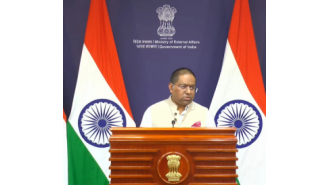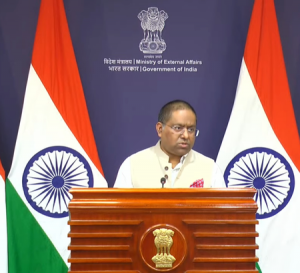How will extended time on the ISS affect NASA astronauts stranded in space?
The change is a puffy face and chicken legs.

Spacewalks are a fascinating way to pass the time, don't you think? It's hard to imagine floating in the vast emptiness of space for any length of time, but that's exactly what Barry 'Butch' Wilmore and Sunita 'Suni' Williams signed up for. Initially, they were only supposed to spend a week on the International Space Station, maybe eight days at the most.
But as fate would have it, they've been stuck up there since June due to some technical glitches. And unfortunately, they'll be staying there for a little while longer because their February rescue mission has been delayed. The delay is due to SpaceX, a company owned by the visionary Elon Musk, needing more time to prepare their new Dragon capsule.
As Steve Sitch from NASA explained, creating a new spacecraft is a meticulous process that requires attention to detail. So, Butch and Suni will continue living in the ISS for around eight months before they can finally return to Earth. But what about the physical effects on their bodies?
As we all know, space is a harsh environment for us humans. There's no air to breathe and no gravity to keep our bones and organs in place. Even inside the ISS, strange things can happen to our bodies.
For example, standing up becomes almost pointless. Our muscles, which usually help us maintain good posture, can decrease by up to 20% in just two weeks. This also includes the heart, which doesn't have to work as hard in low-gravity conditions.
As a result, it can shrink by 1/40th of an ounce per week. Another interesting fact is that blood flow in space is a two-person operation. The heart pumps blood up, but without the help of gravity, it struggles to keep it there.
This can cause a condition called oedema, which affects the optic nerve and can develop in just two weeks. Some astronauts, like Michael R. Barratt, who spent six months on the ISS, even experienced changes in their eyesight and had blemishes on their retina due to the pressure from all the liquid.
One of the most noticeable physical changes in space is weight loss. As their bodies adapt to the weightlessness, Butch and Suni will likely lose around 5% of their body weight during their stay in the ISS. This is because bones lose strength and density without gravity, and muscles also weaken.
In fact, astronauts can lose up to 2% of their bone mass every month, which is significantly more than what older men and women lose in a year. But it's not just our muscles and bones that are affected by space. Extended stays in space can also cause changes in the brain, specifically in the parts that control movement and orientation.
One Russian cosmonaut, who spent 169 days on the ISS, experienced a rewiring of these brain areas. And yes, it's true that people can grow taller in space. Without gravity compressing their spines, astronauts can add up to two inches to their height.
But this can also lead to back pain while in space, which is a trade-off they have to make. Aside from the lack of gravity, another major difference between life on Earth and in space is the level of radiation exposure. On Earth, our atmosphere acts as a protective shield against radiation from sources like exploding stars.
But in space, there is no such barrier. This means that astronauts on the ISS are constantly exposed to high-energy atomic nuclei, which can cause DNA damage and increase the risk of cancer. Currently, the longest any human has spent in space is almost 438 days, a record held by Dr.
Valery Polyakov on the Russian space station Mir. However, NASA doesn't expect Butch and Suni to surpass this record during their stay on the ISS. As Steve Sitch mentioned, they are grateful for the hard work of the SpaceX team in expanding their fleet and the cooperation of the ISS program and crew in preparing the new capsule for flight.
So, while their stay in space may be longer than planned, it's all in the name of scientific progress and exploration.










